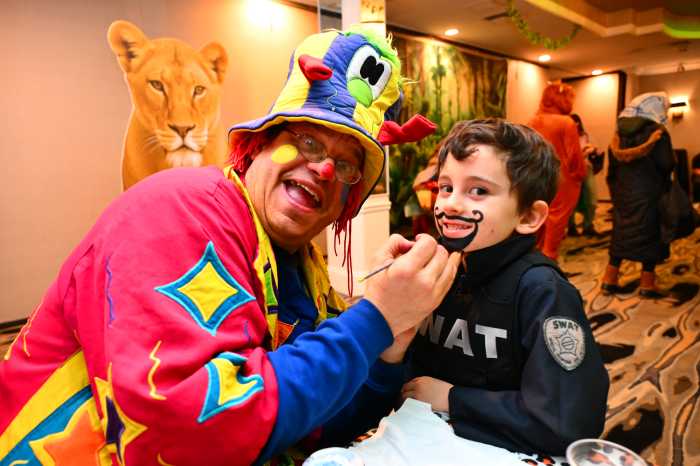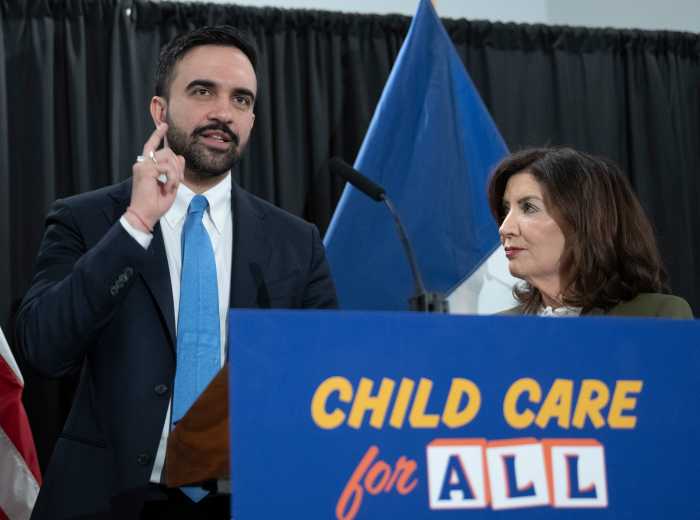April marks World Autism Acceptance Month (changed this past year from Autism Awareness Month). It is dedicated to promoting acceptance, understanding and support for individuals with autism and their families. It encourages communities to foster awareness and create inclusive environments for people on the autism spectrum. This is a time to reflect on the strides we’ve made and the challenges that remain. In New York State alone, more than 342,250 individuals are on the autism spectrum. The news media reports on apparent statistical increases of people with autism (both in New York and other states).
While the rising numbers often make headlines, much of the increase is due to advancements in medical research and diagnostic tools over the past two decades. We have come a long way in comprehending autism, but awareness alone is not enough.
As a parent, my greatest wish is for my child to have every opportunity to thrive. My husband and I have poured our hearts into preparing our son for success, ensuring he has the tools to embrace his full potential. Yet, time and again, we watch as doors close—not because of his ability, but because of stigma. The world sees limitations instead of possibilities. It’s heartbreaking to witness talented, hardworking individuals like my son be judged unfairly, simply because of preconceived notions about autism.
The struggle for acceptance is not new. In 1972, character movie actor Lloyd courageously spoke out about his son, one of the first to be diagnosed with autism. Back then, institutionalization was the norm, and few had even heard of the condition. There was very little that could be done for someone with autism at that time, other than to isolate them and try as best as possible to keep them comfortable.
Thankfully, science, medicine and education have evolved exceedingly since then. Today, organizations like Life’s WORC and the Family Center for Achievement provide life-changing resources, therapies and support systems that help individuals with autism lead fulfilling lives. A field of professionals specializing in autism has emerged helping to drive innovation.
Despite this progress, there is a crisis that demands immediate attention: employment. Nearly 85% of individuals on the autism spectrum are either unemployed or underemployed. Many of them are qualified, eager and more than capable of contributing—but misconceptions prevent them from being given a chance. Employers hesitate, fearing that autistic employees will struggle with workplace interactions or productivity. Some worry about increased insurance costs or more government regulations, assumptions that are often untrue. Others are concerned about making accommodations or managing social dynamics. These fears stem from misunderstanding rather than reality.
People with autism may approach communication differently—struggling with eye contact or traditional conversation norms—but that does not mean they lack the skills to excel. Unfortunately, hiring managers often view these differences as dealbreakers, dismissing perfectly capable candidates before they’ve had a chance to prove themselves.
This is where Life’s WORC/the Family Center for Achievement is able to make a difference. Their approach is threefold:
1. Engaging employers—convincing them to recognize the value autistic individuals bring to the workforce.
2. Providing specialized training—ensuring candidates are prepared and equipped to succeed.
3. Matching skills to job functions—so each individual is placed where their talents shine, minimizing the risk of failure.
One “case study” of this initiative is Coliseum Kitchen & Caterers in Plainview, New York. Owner John Murn has embraced the mission, hiring multiple autistic employees and proving that inclusion isn’t just possible—it’s beneficial for businesses. His latest venture, Next Level Cafes, takes the vision even further, employing individuals with autism at snack and coffee bars across the region.
Individuals with autism are not looking for charity or pity. They want what everyone wants: the dignity of work, the joy of contribution and the pride of self-sufficiency. They bring enthusiasm, dependability and attention to detail—qualities that many workplaces desperately need. In contrast, many employees who view service jobs as merely a paycheck lack the dedication these individuals inherently have.
If every business made room for even one or two autistic employees, the economic impact would be transformative. More importantly, we would be sending a powerful message: every individual deserves the chance to succeed. It’s time to turn awareness into action.
Vanessa Rogan is the Chairperson of Life’s WORC and the Family Center for Achievement. She resides in Garden City, New York.





































